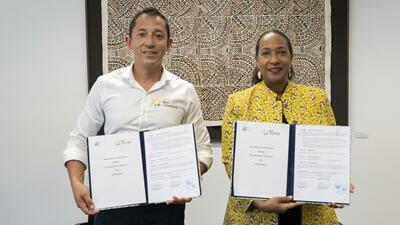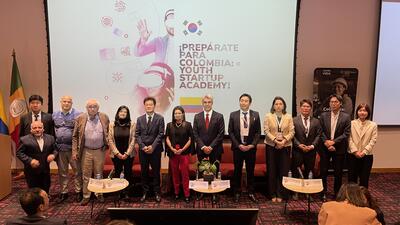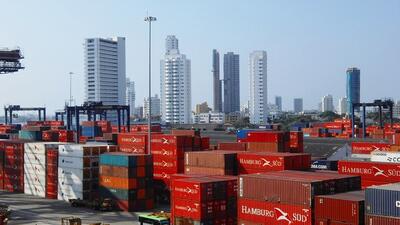Single window for foreign trade in Colombia: A case study on trade transactions
Since 2005 Colombian companies have been relieved of the time-consuming need to visit the numerous government offices involved in the international trade process by the establishment of the Single Window for Foreign Trade – SWFT. To facilitate trade, this system enables public entities involved in foreign trade to allow companies to conduct paperless business transactions with the support of information and communications technologies. Developed by the Ministry of Commerce, Industry and Tourism, with the support of the Connectivity Agenda Program of the Ministry of Information and Communications Technologies, this solution covers both national and international trade and is available for all companies, regardless of size or sector.
Companies can use SWFT in each phase of trade, from imports to exports, including authorizations, registrations and certifications, and along with consulting fees, monitoring of applications filed and the payment of associated costs. This single window integrates and facilitates electronic communication with up to eighteen entities1 through which a company handles import and export procedures.
When launched, the main objective of implementing the system was to contribute to the competitiveness of Colombian companies by simplifying and rationalizing the system and procedures, allowing companies to undertake procedures in the area of imports and exports remotely, improving communication between the entities involved in foreign trade processes, and facilitating the relationship between these entities and the wider community.
Business, government and society all benefit from SWFT:
• There is greater efficiency, with trade procedures reduced to just three days compared to as much as one to two months previously. SWFT is available for use 24 hours a day, seven days a week. Substantial cost savings are achieved both for businesses and public entities. Companies outside the capital benefit, saving additional time and costs associated with physically transferring documents.
• There is greater consistency and security in foreign trade operations, since the eighteen entities linked to SWFT are based on a single application, avoiding distortions arising through the use of different forms. By digitizing signatures and streamlining procedures, SWFT significantly improves the quality and security of transactions, ensuring the confidentiality and inviolability of information for users. The procedures are not only performed more safely, but can better control the response of the entities associated with foreign trade processes.
• It offers better service, with a virtual training system, and enables users to track progress, solve technical problems and ask for explanations about unmet needs, additional requirements or denial of the request through a contact centre or by e-mail. Additionally, the system prompts the user for feedback and there is a continuous improvement process based on the needs expressed by users and the results of audits by third parties on the reliability and quality of the service.
• There is greater transparency, middlemen are no longer necessary, services are provided on a first come, first served basis, and laws are effectively and uniformly enforced, eliminating malpractice. The procedures are performed even-handedly and in parallel between the entities involved in a specific foreign trade transaction, with everyone continuously informed of progress.
The development of projects through SWFT requires not only good technology but the commitment of the leaders of all entities involved, adjustments in relevant regulations, perseverance, business culture adjustments, and deft change management. Skilled and responsible entity and trade staff must customize work to meet expectations. Challenges associated with electronic payments and the digitization of signatures must be solved in an integrated manner to ensure the safety and effectiveness of the solution.
Achieving maturity in a process like SWFT requires a great deal of patience and pragmatic decision-making to overcome mistrust. Training and testing and allaying companies’ doubts are essential. After a period of stabilization, the mandatory use of electronic channels to conduct all foreign trade operations will achieve long-term benefits.
The leadership of the Connectivity Agenda Program was critical to the implementation of SWFT, capturing interest and involvement by trade entities by demonstrating the potential benefits for all concerned. A survey led to the elimination of 135 procedures and the transformation of 35 forms into just one. Training for public- and private-sector employees and securing the support and backing of the various sector trade unions were vital.
1 Ministries of Mines and Energy, Environment, Housing and Territorial Development, Transport, Social Protection, External Relations, Agriculture and Rural Development, Defence, Culture, and Commerce, Industry and Tourism; the Superintendence of Industry and Commerce, the National Narcotics Directorate, the Superintendence of Surveillance and Private Security, the Colombian Institute for Rural Development, the Colombian Agricultural Institute, the National Narcotics Fund, the Military Industry (INDUMIL), the National Drug Watch Institute and the Colombian Institute of Geology and Mining.











